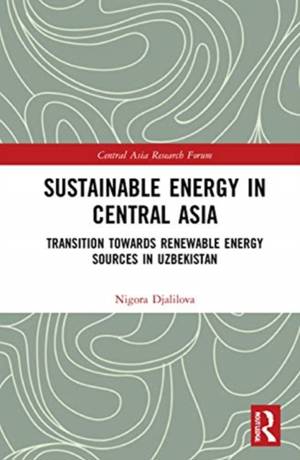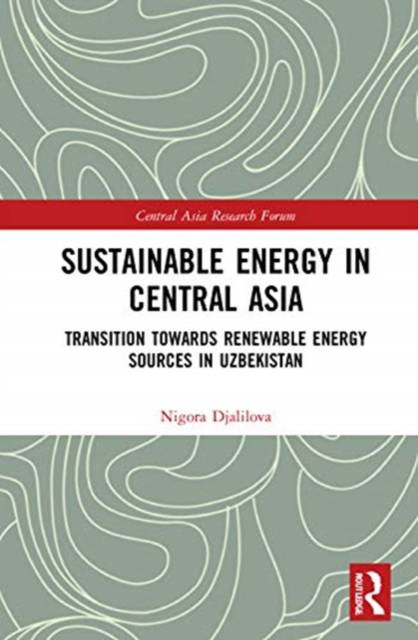
- Retrait gratuit dans votre magasin Club
- 7.000.000 titres dans notre catalogue
- Payer en toute sécurité
- Toujours un magasin près de chez vous
- Retrait gratuit dans votre magasin Club
- 7.000.0000 titres dans notre catalogue
- Payer en toute sécurité
- Toujours un magasin près de chez vous
Sustainable Energy in Central Asia
Transition Towards Renewable Energy Sources in Uzbekistan
Nigora Djalilova
290,45 €
+ 580 points
Format
Description
This book argues that sustainable energy development represents a new frontier for many transitional economies, including those countries which are well-endowed with traditional energy resources, as exemplified by the case of Uzbekistan in Central Asia.
Spécifications
Parties prenantes
- Auteur(s) :
- Editeur:
Contenu
- Nombre de pages :
- 180
- Langue:
- Anglais
- Collection :
Caractéristiques
- EAN:
- 9780367621377
- Date de parution :
- 01-03-21
- Format:
- Livre relié
- Format numérique:
- Genaaid
- Dimensions :
- 140 mm x 216 mm
- Poids :
- 358 g

Les avis
Nous publions uniquement les avis qui respectent les conditions requises. Consultez nos conditions pour les avis.






